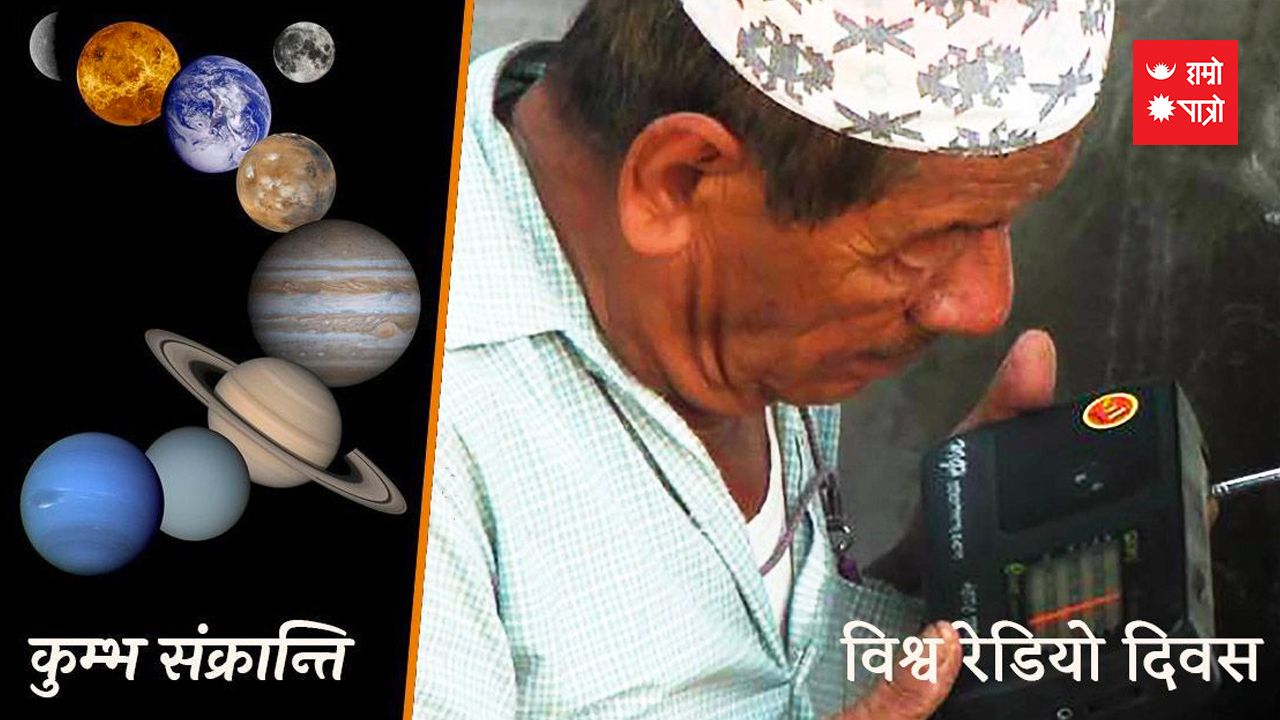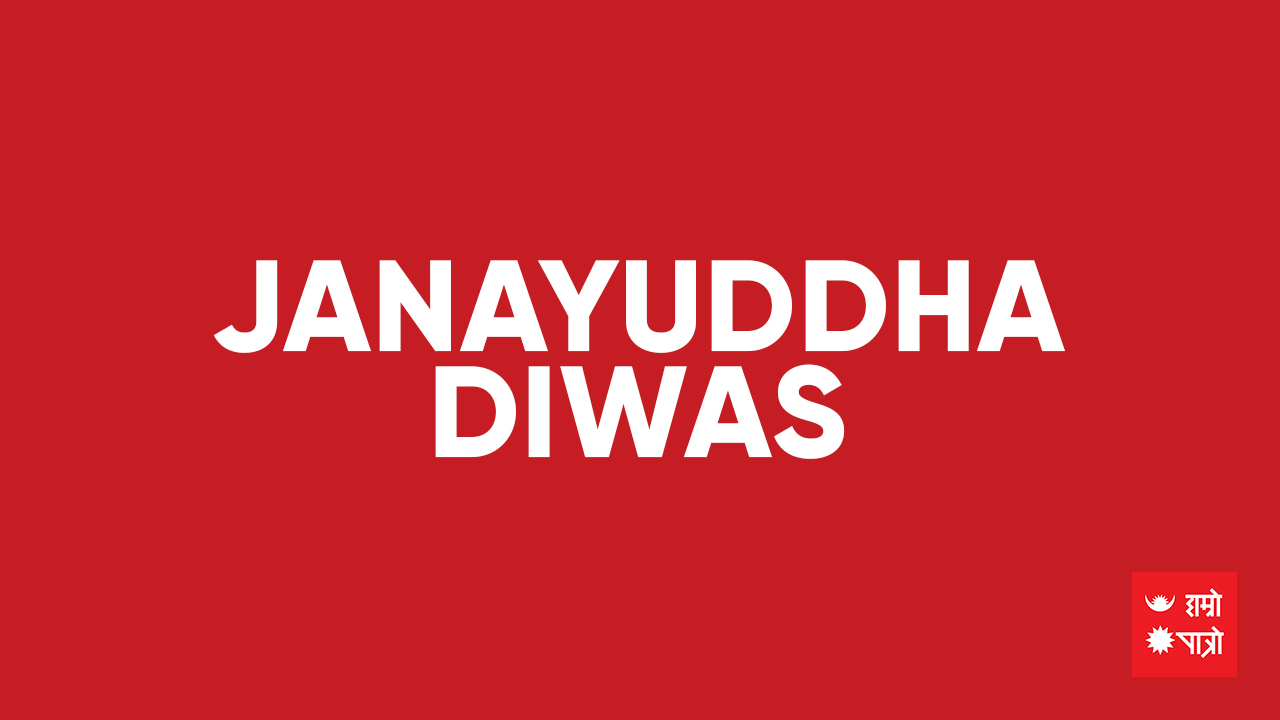
The commencement of this spring will add to your happiness. From today, the Sun is entering Aquarius from Capricorn. Welcome to the Kumva Sakranti of this year.
Now, the winds will begin to blow slowly. The grains planted after cutting the paddy in the field are now ripening. In the Terai region, the fields have been flooded with wheat plants. Now, the time shortened by the bitter cold will grow longer, cuckoo's Kuhu Kuhu will fill the warm long days with music.
The main thing is to make the longer and fun filled evening time. It's now a fiesta for those who like the evening time.
The name of the month "Falgun"
This month is named Falgun after a star in the solar system named 'Uttarafalguni'. The first day of the month is called Sankranti and the last day is called Masanta.
This special day is celebrated not only in Nepal but also in neighboring countries like India and Bangladesh by welcoming the spring season in the traditional style. Bangladeshis prepare a variety of traditional desserts and dishes to celebrate 'Pohela Falgun' or 'Basanto Utsav'. In Bengali, Pohela is the first, so it is clear that it is celebrated on the first day of Falgun, i.e. Sakranti.
May this fall be beneficial for all, may it be auspicious. In the many ups and downs of life, the colors of enthusiasm should not be diminished, the colorful dimensions of hope should be added, and the smile should increase the inspirations. Happy Kumva Sakranti
World Radio Day
Members of UNESCO proclaimed world radio day on 2011, and it was adopted by UN general assembly in 2012 as an international day for Radio, February 13th became the World Radio Day (WRD). This also marks the anniversary of the first radio broadcast in 1946. The theme for this year is "Radio and peace", so the unity in diversity and peace is the advantage of radio frequencies. Year 2023 is the 12th edition of "World Radio Day".
In a world equipped with smartphones, Smart TVs, Tablets and PCs people often ask us "Why Radio?"
Well, Radio's strength is educating and informing the maximum numbers of people in their daily lives and in an emergency has always been important.
Radio experience in Nepal
Especially in Nepal, Radio has a huge significance in both romance and revolution. Yes, romance and revolution because both these terms depict the power of expression. Radio delivered messages and created awareness in our society, awareness on sanitation, toilet usage, diarrhea, HIV AIDS, Safe sex and have always fostered our equal access to information. Radio has a strong role in institutionalizing Nepali democracy, strengthening people's movement and truly creating a democratic Nepal. Radio goes wherever modern technology can't, beyond electricity, beyond mobile signal, beyond literacy, beyond screens and beyond what not? Radio is a social medium, fostering engagement and meaningful participation, in people's own mother tongues.
How did you feel for the first time you heard your name pronounced on the radio? How did it feel to have your letters read over the radio? Ever dedicated a song for someone through radio? Visited a radio station and how it felt to see the face of your favorite radio jockeys? Radio is a wonderful tool, it gave us an experience that is larger than life.
Everyone alive today has definitely listened to the radio at least once and most people listen to the radio every day. The radio is the origin of multiple means of communication today however, the radio itself owes its manifest to the other two inventions "Telephone" and "Telegraph". Primarily started as "Wireless Telegraph" Radio is an electronic appliance that enables us to listen to the sound waves by translating them from frequencies and waves. Radio waves are electromagnetic waves that can transmit music, speech, pictures, and other data invisibly through the air.
Radio is a uniquely personal communication medium that is based on sounds, these sounds invoke the listener's imagination and translate perception into their minds. Are you not tired of shuffling the newsfeed over Facebook? How long can you see and close the YouTube videos and deal with your preoccupied mind? Radio is something that is simple yet inspiring, engaging yet free and translated a never tiring zeal to its listeners.
History of Radio in Nepal
The first phrase in Nepali radio was broadcast on the 2nd April of 1951, where the first chief of Radio Nepal Mr. Tarini Koirala declared on the radio that it was a radio of democracy. Broadcasted from the Khumaltar station of 500 watts, Today Nepal has hundreds of Radio stations, FMs and countless podcasts and online streaming. Maybe I sound old fashioned but the bold and formal tone in Radio Nepal "Yo Radio Nepal ho, aba sunnuhos bata samachar" still revolves around my head and brings back a thick cloud of nostalgias into my mind. Radio is also a thread of memories for people like me.
Hereby, I would not miss this chance to bring a popular youth radio show "Sathi Sanga Manka Kura" where I worked as a program producer for 3 years. I had this opportunity to host over 100 episodes and develop above 243 episodes and segments. I remember those piles of letters sent by our listeners, radio was the medium of friendship and every week over a million Nepali youth listened to their best friends show "Sathi sanga manka kura" in their radios. Radio has a remarkable impact on my life, initially as an active listener, letter writer, and a regular caller, later as a host, scriptwriter and a program concept developer.
Gratitude to people who dedicated their lives for the radio, inventors, and innovators. My sincere wishes for those radio stations which are striding their level best just to sustain, for those radio enthusiasts who selflessly catches microphones and entertains/ educates. There is every reason to support local radio station's continued existence rather than put them in peril.
Radio stations play a critical role in society and the community by forming critical communication channels that are used to consume information. Communication is essential in our transformation and only through critical thinking, exchange of information we transformed our society, improved our living standards and facilitate the next innovation and invention.
Radio is still relevant
Let me write in clear and bold letter that radio is still relevant, every day hundreds of calls are made to radio stations to share ideas and contribute to nationwide discussions. This affordable device brings everyone together, young, old, poor and rich. Everyone is welcome to share their opinions, and through that create understandings and tolerance among communities and people. If you hold the microphone, keep up the voice and zeal, if you are a listener than do tune into radios. Wishing a meaningful radio day, Namastey from Nepal.
Janayuddha Diwas
Background
The Maoists attacked the police stations of Rolpa, Sindhuli, and Gorkha on Falgun 1, 2052 B.S., and officially initiated an armed war in Nepal. This war was waged against the government, rulers, system, and constitutional foundations of the time. To achieve "federalism and people's democracy," thousands of Nepalis lost their lives during the armed war. Falgun 1 has been celebrated as Janayudhha Diwas since then, and the Janayudhha Diwas of 2079 B.S. is the 29th edition.
The armed war that started on Falgun 1, 2052, was transformed into a detailed peace agreement on Mangsir 5, 2063 B.S. Based on this agreement, New Nepal is embarking on a new path of democracy. On the foundation of that people's war, political change was possible in Nepal, and achievements like the republic, the federal system, inclusive democracy, and social justice are being established on the strength of that people's war and that people's movement.
In memory of the martyrs of the armed conflict
There is a list of more than 13,000 martyrs who lost their lives during the 10-year armed conflict. Today, all known and unknown martyrs and their sacrifices are discussed and acknowledged.
Public holiday
The meeting of the Council of Ministers held at the office of the Prime Minister and the Council of Ministers on Sunday afternoon, Magh 29, has decided to declare Falgun 1 as a public holiday.
Meaningful wishes on this day.
Suyog Dhakal
Liked by: